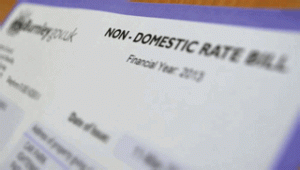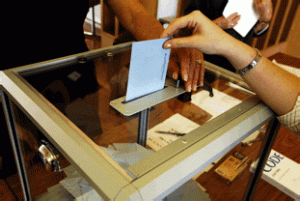March 23, 2015
General Election 2015: What this means for small business
With just over 45 days until the UK General Election, people all over the country are trying to decide who is worthy of their cross on the ballot paper, and this goes for small business owners and startups too.
So when one third of the private sector turnover comes from small business, it’s no surprise that the main parties are starting to look at getting small business owners on side.
There are various pressure points that political parties can address, which are of concern to small businesses; whether that be business rates, cutting of red tape, or regional development.
In this post, we’ll look at what is important to you this election, and give you the run down on what the main political parties are saying.
Red Tape
Whether they like it or not, all small business entrepreneurs have to deal with business regulations. At the beginning of this Parliament, Prime Minister David Cameron promised help for small business, and this came in the form of a three-year initiative to cut red tape.
However a recent study by business information group Croner found that more than half of the companies they surveyed felt that the measures have had no impact on their business. Moreover, a further 41% were unsure on the effect that the campaign has had.
For 2015, the two coalition partners have been clear that they want to cut red tape, with the Conservatives shouting a little louder, saying that small business is “disproportionately affected by regulation”.
The Liberal Democrats have come out to say that they will establish a Regulation Advisory Board which will focus on low carbon and efficient innovation.
Whereas Labour would model a US agency set up to assist entrepreneurs and small business, calling it a Small Business Administration.
Business Rates
Business rates can hit you hard wherever you are, and many business owners feel like they are a hidden tax. This is why there have been repeated calls for changes to the system which governs rates.
Last Autumn, the chancellor George Osborne promised a review on the rates system, and since then has said that rate relief has been doubled until April 2016.
 Labour have committed themselves to cutting business rates in 2015, plus 1.5 million business properties could benefit from a freezing of rates in 2016.
Labour have committed themselves to cutting business rates in 2015, plus 1.5 million business properties could benefit from a freezing of rates in 2016.
The Liberal Democrats meanwhile have said that they will review business rates, which are a “disproportionate burden” on small businesses, and look at alternatives. “The review will cover the option of moving to site value rating within five years, and in the longer term land value taxation more broadly,” a spokesman said.
Regional Development
It can feel like a struggle for businesses to get off the ground outside of London, but the Liberal Democrats have committed to investing in manufacturing in areas such as motor vehicles, aerospace, low-carbon energy and chemicals to increase international trade by continuing the Regional Growth Fund.
On the other hand, Labour has committed to creating a British Investment Bank and a series of regional banks to boost lending to small businesses.
Finally, the Conservatives are looking to transfer power and budgets to cities in the North and, like their coalition partners, boast the Regional Growth Fund as an achievement.
The Others
Besides the big three, Ukip are determined to exit Europe, and the free trade agreements that go with it. However they assure business owners that cutting bureaucracy will allow them to continue to support businesses in the long run.
On the other side of the spectrum, the Greens are looking to up the minimum wage but they also have a number of small business specific policies such as introducing legislation on late payment and simplifying PAYE.
The Political Playing Field
Despite small business interest in these three areas, it seems that UK businesses aren’t worried by the election, even when their prospects are under discussion.
Elections can have such an impact on small business, so it’s no wonder that small business owners and startups are interested in what politicians have to say. That said, BDO’s Business Trends report finds that business optimism and output are still high, and that businesses are less worried about who gets the keys to Number Ten and more about the long term economic prospects of the UK.
The next election is unpredictable, no one is really sure where loyalties lie. Here at DAA Consulting we think keeping a keen eye on the upcoming policies and campaigns that will surely emerge, and are confident in helping your business plan for any eventuality. Just drop us a line to see how we can help.



